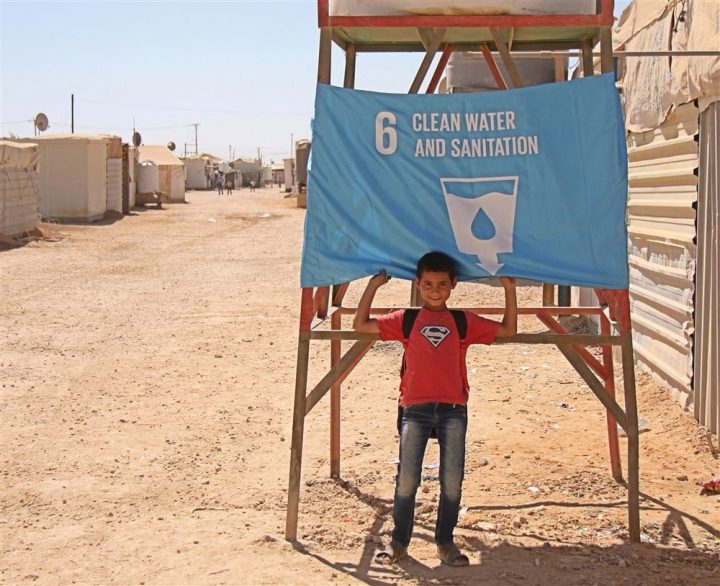Last week, on the 22nd March, the world celebrated the World Water Day. It is indeed unanimously recognised that water contributes extensively to the existence of all living creatures on the planet. From the human being’s biological constitution, which is made up of 70% of water, to the oceans being the home to the tiniest living organisms on the planet, water in all its forms, is crucial for existence and livelihood.

Lecturer in Law
University of Mauritius
Although it is uncontested that water represents a symbol of life, in many cases, having access to clean and safe water and making adequate use of it, can represent a challenging task for many people in the world.
In India for example, millions of people are living without a direct access to safe and clean water. Due to its high population density, the country is facing much pressure to provide for adequate and safe water for everyone. Linked to the lack of access to clean water, many environmental and health hazards are cropping up in the country. Malaria, cholera, typhoid and dysentery are among the waterborne diseases that affect thousands of people in the country of The Mahatma.
On the other side of the Indian Ocean, in South Africa, just like in India, there is an expanding gap between water demand and supply. Since the beginning of the year, the city of Cape Town in South Africa, is facing one of the most severe droughts in its history. The mayor of the city, Patricia De Lille, announced that on 21 April of this year, a ‘Day Zero’ will be declared. On this ‘Day Zero’, water supply to households and businesses will be cut off. The dreaded consequence of this cut in water supply will cause a temporary stop in the social and economic activities of the city. Businesses, schools and households will not be able to function properly without water and this can lead to millions of Rand being lost for the city.
In Ethiopia, a new phenomenon, known as water grabbing, is affecting the lives of many indigenous communities. It is described as a situation where governmental or private organisations manage and control water resources to their own advantage. This results in the deprivation of local communities, who depend on this water for their livelihood, from accessing it. The construction of a dam around the Omo Valley River Basin in Ethiopia is destroying the livelihoods of around 500,000 indigenous people.
Having access to safe and clean water is not a hurdle faced by people in developing countries only. People from the so-called developed world also face the same issue. Approximately 20 million Europeans do not have access to clean water for sanitation purposes. This has a direct consequence on the health of individuals resulting in socio-economic challenges for countries.
Recognising the challenges faced by individuals, communities and states with regards to access to clean and safe water, on the 28th July 2010, the United Nations General Assembly declared that every human being has a human right to water.
Article 2 of the General Comment 15, which was adopted by the UN Committee on Economic, Social and Cultural Rights, defines the human right to water. The right entitles every individual to sufficient, safe, acceptable, physically accessible and affordable water for personal and domestic uses.

The human right to water is intrinsically associated with several other fundamental human rights such as: the right to life, the right to food, the right to health and the right to an adequate living standard.
With an ever-growing number of people having limited access to safe drinking water, which results in poor sanitation and health issues, it was time for the international community to take the necessary steps in order to combat this problem. As the UN Secretary General, Ban Ki-Moon, said “ The children who have no clean water to drink, the women who fear for their safety, the young people who have no chance to receive a decent education have a right to better, and we have a responsibility to do better. All people have the right to safe drinking water, sanitation, shelter and basic services”.
In line with the above, General Comment 15 provides for the specific legal obligations of States to ensure the realisation of the human right to water. These obligations are the following: the obligation to respect, the obligation to protect and the obligation to fulfil. Article 21 of the General Comment describes the obligation to respect. States should refrain from interfering directly or indirectly with their citizens’ enjoyment of the right to water. States should not engage in actions that would deny or limit people and communities access to safe and adequate water. Governments should grant people and communities access to water and respect the latter’s enjoyment of this vital resource.
Concerning the obligation to protect, States should prevent third parties from interfering with their citizens’ access to affordable, clean and safe water. States have the obligation to protect their citizens from any malpractice that can hinder their access to water.
Finally, with regards to the obligation to fulfil, Article 26 requires States to take actions that will result in the full realisation of the human rights to water. These include, inter alia, according sufficient recognition of the human right to water in the national legal system through legislative implementation, create a national water strategy and ensure access to water for everyone.
The United Nations predicted that by 2025 around 3.4 billion people would be living in ‘water-scarce’ countries. It is high time that governments took the necessary actions to implement sound and reliable water management systems to ensure a fair and equitable access of water to everyone. By recognising a human right to water, this should give an impetus to countries to start taking the necessary actions in order to protect this important right. In this regard, water conservation, management and distribution should become a national obsession.
References
http://www.un.org/waterforlifedecade/human_right_to_water.shtml
http://www.refworld.org/pdfid/4538838d11.pdf
https://www.unric.org/en/water/27360-making-water-a-human-right
https://ceowatermandate.org/humanrights/understanding-impacts/hrws/

